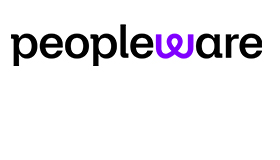Chris Dealy at injixo looks at contact centre outsourcers and outlines seven strategies for WFM success.
Contact centre business process outsourcers (BPOs or “outsourcers”) have similar goals and challenges to in-house contact centres—and some additional ones of their own. They’ve got to keep several plates spinning at all times:
- Operating their clients’ contact centre operations to agreed standards, more cheaply than they can do themselves, while still making a profit
- Minimizing the churn of clients by consistently delivering against service level agreements and demonstrating this with effective reporting
- Winning new clients by submitting timely, competitive, and sustainable proposals
- Earning a reputation for delivering a service that is appropriate to the target client base: high quality of service, match of company culture and brand, low cost, or a combination
- Avoiding massive staff turnover levels, despite expecting extremely high levels of occupancy and multi-skilling from employees
Do they have a secret sauce that helps them to achieve that? We’ve identified a number of strategies that successful outsourcers deploy in order to thrive in this highly competitive business environment.
1. Align Costs With Revenues
The outsourcing business is characterized by volatile levels of business activity. Outsourcers don’t just have to contend with the seasonal variations that many in-house contact centres face.
An eternal truth for outsourcers is that client contracts come and go. When a client doesn’t renew and headcount reduces, outsourcers can’t afford to pay for systems and software that lie idle.
Equally, when a new client signs up or an existing client adds a new campaign, they don’t want to have to go through a lengthy procurement process and IT project.
For that reason, outsourcers were early adopters of cloud contact centre technology. The cloud means rapid implementation, high system availability, and instant scalability. Of critical importance for outsourcers, cloud applications are often invoiced on a monthly pay-per-use basis.
This means that you only pay for the capacity you need, instead of having expensive perpetual software licenses sitting on the shelf. Pay-per-use means that costs are tightly aligned with revenues, with positive consequences for profitability.
2. Be Agile
Just as in the natural world, success in outsourcing is not about survival of the fittest, as measured by turnover, profits, or headcount. It’s about the survival of the most adaptable.
Outsourcers need to be able to scale up quickly when new clients come on board. They can’t afford a long hiring process or heavy IT procurement projects every time.
Setup costs need to be low and implementation needs to be rapid. Equally, contact centre outsourcers need to be agile enough to scale down and reduce people and technology costs when the business enters a quiet period.
Systems need to be flexible enough to cope with disparate client demands and all the necessary integrations have to be put in place without friction.
Outsourcers need technology partners who are passionate experts, with a shared sense of urgency and a can-do attitude, and whose success is genuinely measured by their customers’ success.
3. Ruthlessly Pursue Efficiency
Organizations count on outsourcers to run their contact centre operation more efficiently than they can themselves.
They expect the outsourcer to cope with peaks and troughs that they struggle to handle in-house. And they expect the outsourcer to do all that for less money than the cost of the in-house option.
It’s simplistic to assume that outsourcers achieve efficiency by simply locating their centres offshore. Whether they operate offshore or onshore, outsourcers have a well-deserved reputation for challenging every expense.
They demand excellent value-for-money from their suppliers. With staffing costs typically accounting for over 80% of contact centre operating costs, they optimize agent schedules as much as possible, within the constraints of client contracts.
Clients are frequently unable to provide accurate forecasts of contact volume or average handling time (AHT), so they perform their own forecasting in order to stay ahead of the game.
And when it comes to real-time management, they don’t rely on fire-fighting—they have a clearly defined plan to react, supported by powerful software.
4. Keep a Laser Focus on the SLA
Every contract between outsourcer and client includes a service level agreement (SLA), which lays out the required grade of service, how this is measured, and the penalties for failing to achieve the target.
Not hitting the service level goal doesn’t just cause some awkward conversations between contact centre management, the planning team, and operations. It has real financial implications. And if underperformance becomes routine, the client is unlikely to renew the contract.
For that reason, outsourcers constantly monitor and control SL achievement. They also have well-defined tactics to ensure that it is achieved exactly as described in the contract.
Equally, outsourcers are careful not to consistently exceed the grade of service specified in the SLA. Over-performance is the consequence of over-staffing, and that contradicts the efficiency imperative.
5. Control Staff Turnover
Every contact centre has to balance three opposing forces: service level, operating cost, and agent satisfaction. This challenge is even greater for outsourcers than in-house contact centres.
In a competitive industry, it’s essential to minimize costs to make attractive pricing sustainable. Hitting customer service goals isn’t a nice-to-have, it’s business-critical.
The need for efficiency leads outsourcers to strive for maximum productivity from employees. That productivity is commonly enabled by multi-skilling and skills-based routing, which leads to high levels of agent occupancy.
Well-run outsourcers achieve a high but sustainable level of occupancy without burning out the agents to the extent that they resign from the company. A critical component of that is good planning practice.
Accurate forecasting avoids unexpected spikes; deliberate and consistent occupancy goals minimize burnout; optimized scheduling consistently matches the supply of agents with demand, thus reducing stress and attrition; engaging and empowering agents with self-service via their smartphones empowers agents to manage their work/life balance.
6. Automate as Much as Possible
Running a contact centre can be labor-intensive. The need to control cost drives outsourcers to constantly seek ways to eliminate manual effort from as many processes as possible.
Automation takes many forms: ‘bots’ dealing with customer inquiries; speech analytics to automatically find calls that breach quality guidelines; artificial intelligence automatically producing accurate forecasts of contact volume; and optimization algorithms that build agent shifts that align perfectly with customer demand.
A challenge that is greater for outsourcers than in-house contact centres is reporting. Client contracts typically include reporting requirements, and typically each client has different reporting requirements.
Outsourcers typically employ top-notch MI (management information) analysts, who use APIs (application programming interfaces) to provide regular client reports with little or no manual effort.
7. Choose the Right WFM Application
The goal of workforce management (WFM) is to optimize the deployment of the most valuable – and costly – resource in every contact centre: the employees. Nowhere is this more important than in the outsourcing business.
What does ‘good’ look like when outsourcers choose a WFM application?
- Critical: Monthly pay-per-use pricing. No software license ‘ratchet effect’. Plus…
- Instant scalability
- Rapid implementation and low startup costs
- Unlimited ACD integrations
- Flexible configuration options
- Industry-strength information security
- Top-notch onboarding and support from local experts
- AI forecasting to validate client forecasts with minimal effort
- Optimized scheduling to maximize schedule efficiency
- Sophisticated real-time management tools
- REST-compliant API backed up with a custom report building service
This blog post has been re-published by kind permission of Peopleware – View the Original Article
For more information about Peopleware - visit the Peopleware Website
Call Centre Helper is not responsible for the content of these guest blog posts. The opinions expressed in this article are those of the author, and do not necessarily reflect those of Call Centre Helper.
Author: Peopleware
Published On: 4th Apr 2023 - Last modified: 17th Jun 2024
Read more about - Guest Blogs, Chris Dealy, Peopleware






 Peopleware is the award-winning, multi-channel cloud workforce management application for contact centers and customer support. Over 300 customers, ranging in size from 50 to over 4,000 seats, trust Peopleware to bring work and demand in perfect balance while embracing the constant change in their business. With Peopleware, you spend less time and effort on manual forecasting and scheduling, while maximizing efficiency and focusing on what really matters: your people and customers.
Peopleware is the award-winning, multi-channel cloud workforce management application for contact centers and customer support. Over 300 customers, ranging in size from 50 to over 4,000 seats, trust Peopleware to bring work and demand in perfect balance while embracing the constant change in their business. With Peopleware, you spend less time and effort on manual forecasting and scheduling, while maximizing efficiency and focusing on what really matters: your people and customers.





























